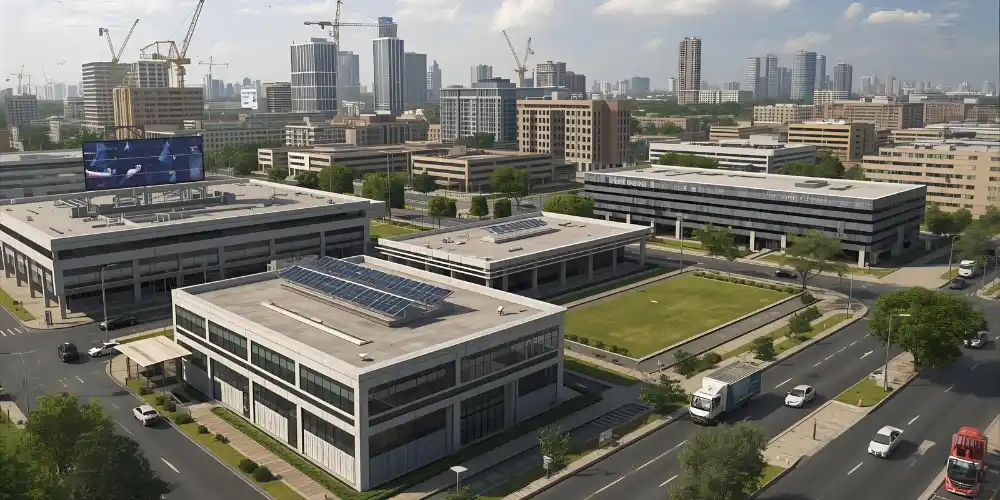Key Challenges Hindering Private Sector Growth in Sub-Saharan Africa
Introduction
The private sector in Sub-Saharan Africa plays a crucial role in driving economic growth, creating jobs, and fostering innovation. However, despite its potential, the region faces several challenges that impede its development. This article delves into the primary obstacles identified through recent firm-level analyses and discusses their implications for the region’s economic future.
Infrastructure Constraints
One of the most significant barriers to private sector growth in Sub-Saharan Africa is inadequate infrastructure. Poor transportation networks, unreliable electricity supply, and limited access to modern communication technologies hinder business operations and increase costs. Addressing these infrastructure deficits is essential for creating a conducive environment for private enterprises.
Financial Constraints
Access to finance remains a critical challenge for many businesses, particularly small and medium-sized enterprises (SMEs). High interest rates, limited credit availability, and stringent collateral requirements restrict the ability of firms to invest and expand. Strengthening financial institutions and promoting inclusive financial services can alleviate these constraints.
Corruption and Governance Issues
Corruption and weak governance structures undermine business confidence and deter investment. Bureaucratic inefficiencies, lack of transparency, and inconsistent enforcement of regulations create an unpredictable business environment. Implementing robust anti-corruption measures and enhancing governance frameworks are vital steps towards improving the private sector’s performance.
Skills and Human Capital Development
The availability of skilled labor is essential for the growth of the private sector. However, many countries in the region face challenges related to inadequate education systems, limited vocational training, and a mismatch between the skills taught and those demanded by employers. Investing in education and vocational training programs can bridge this gap and support private sector development.
Market Access and Competition
Limited access to both domestic and international markets restricts the growth potential of businesses. Trade barriers, high tariffs, and non-tariff barriers impede the free flow of goods and services. Additionally, monopolistic practices and lack of competition stifle innovation and efficiency. Promoting market liberalization and regional integration can enhance market access and competitiveness.
Policy and Regulatory Environment
An unpredictable and complex regulatory environment can discourage entrepreneurship and investment. Frequent changes in policies, unclear regulations, and burdensome compliance requirements create uncertainty for businesses. Establishing clear, stable, and transparent policies can foster a more favorable business climate.
Access to Technology
Access to modern technology is a vital factor for private sector growth. Many firms in Sub-Saharan Africa struggle with limited internet connectivity, outdated equipment, and insufficient IT infrastructure. Improving technology access, providing affordable internet, and supporting digital transformation initiatives can significantly enhance productivity and competitiveness.
Investment Climate
A favorable investment climate attracts both domestic and foreign investors, which is essential for private sector expansion. Challenges such as political instability, inconsistent policies, and lack of investor protection deter investment. Strengthening legal frameworks and offering incentives for sustainable investments can improve the investment climate.
Access to Markets
Expanding market access is crucial for businesses to scale and diversify. Many private sector enterprises face barriers in reaching regional and international markets due to logistical difficulties and regulatory constraints. Implementing trade facilitation measures and improving supply chain efficiency can help firms access broader markets.
Public-Private Partnerships
Collaboration between government and private enterprises can accelerate sector development. Public-private partnerships (PPPs) enable sharing of resources, expertise, and risks. Encouraging PPPs in infrastructure, education, and innovation projects can foster a more resilient and dynamic private sector.
Entrepreneurship Support
Supporting entrepreneurship is key to private sector growth. Access to mentorship, incubators, and startup funding empowers entrepreneurs to innovate and scale their businesses. Governments and development partners should invest in entrepreneurship programs to nurture talent and encourage new business creation.
Conclusion
Addressing the challenges hindering private sector development in Sub-Saharan Africa requires a multifaceted approach. Governments, in collaboration with the private sector and development partners, must prioritize investments in infrastructure, financial inclusion, governance reforms, human capital development, market access, and regulatory improvements. By tackling these issues, the region can unlock the full potential of its private sector, leading to sustainable economic growth and improved livelihoods for its population.
For more insights and updates on economic developments in Sub-Saharan Africa, visit the IMF Working Paper.




